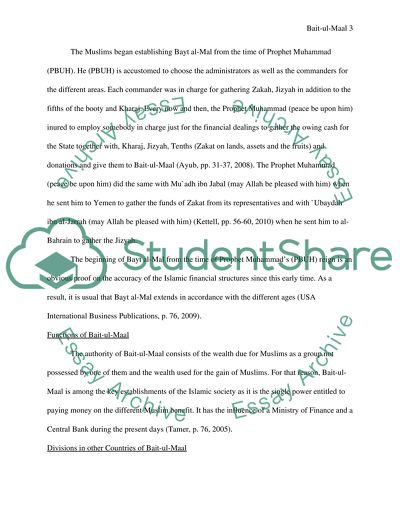Cite this document
(“Bait-ul-Maal. Creation, Functions and Resources of Bait-ul-Maal Essay”, n.d.)
Retrieved from https://studentshare.org/environmental-studies/1408956-what-are-the-charactersitics-of-the-bayt-of-al-mal
Retrieved from https://studentshare.org/environmental-studies/1408956-what-are-the-charactersitics-of-the-bayt-of-al-mal
(Bait-Ul-Maal. Creation, Functions and Resources of Bait-Ul-Maal Essay)
https://studentshare.org/environmental-studies/1408956-what-are-the-charactersitics-of-the-bayt-of-al-mal.
https://studentshare.org/environmental-studies/1408956-what-are-the-charactersitics-of-the-bayt-of-al-mal.
“Bait-Ul-Maal. Creation, Functions and Resources of Bait-Ul-Maal Essay”, n.d. https://studentshare.org/environmental-studies/1408956-what-are-the-charactersitics-of-the-bayt-of-al-mal.


